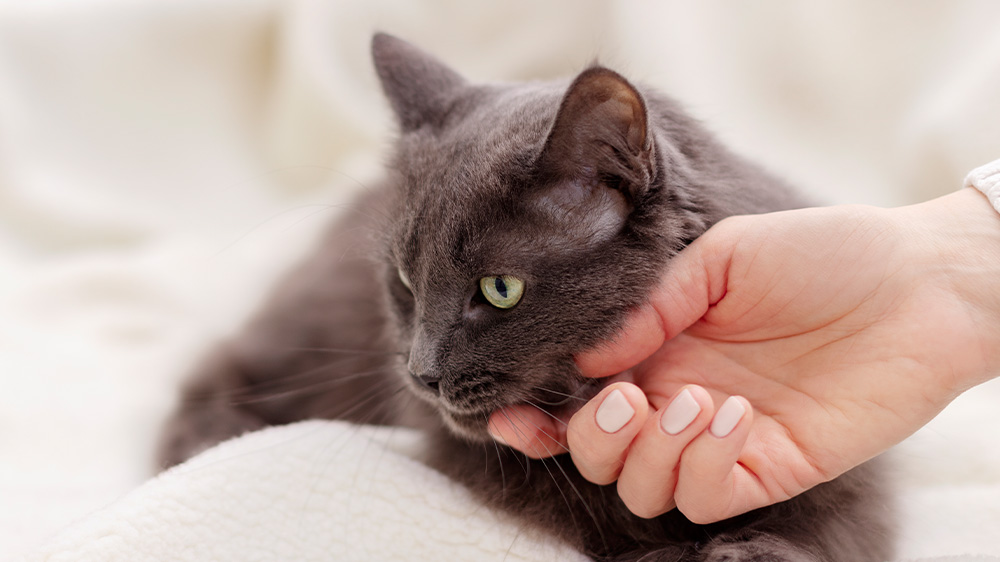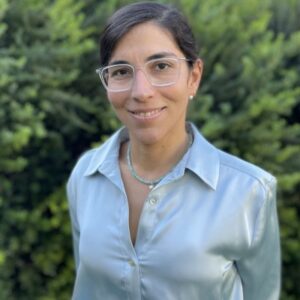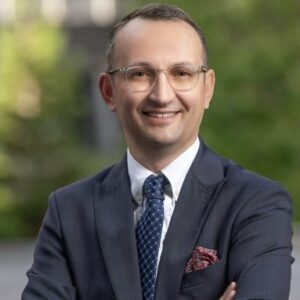
UC Davis researchers explore innovative bacterial therapy for feline chronic gingivostomatitis with AVMF and EveryCat support
Dr. Maria Soltero-Rivera and Dr. Christoph Marycz of the University of California, Davis, are at the forefront of innovative veterinary research. With a grant of approximately $34,000, their study explores a novel approach to treating feline chronic gingivostomatitis (FCGS), a painful and debilitating oral condition affecting cats. This groundbreaking lab-based study investigates how particles derived from beneficial bacteria, when combined with a specialized gel, might offer new hope for managing this challenging disease.
Supported by the American Veterinary Medical Foundation (AVMF) and the EveryCat Health Foundation, this research aligns closely with AVMF’s mission to advance veterinary medicine and improve animal and human health. By addressing a critical gap in the treatment of FCGS, this project not only aims to alleviate suffering in cats but also holds the potential for broader applications in veterinary and human medicine.
In the following Q&A, Drs. Soltero-Rivera and Marycz share the progress of their research and the transformative impact donor funding has had on their work.
How did your research project support the AVMF’s mission, “to develop charitable resources to advance the science and practice of veterinary medicine and to improve animal & human health”?
Our research project directly supports the AVMF’s mission to advance veterinary medicine and improve animal health by addressing feline chronic gingivostomatitis (FCGS), a debilitating disease in cats. FCGS causes severe pain, oral inflammation, and significant quality-of-life issues for affected cats. Treatment, such as extensive tooth extractions, often fails to provide complete relief. Many cats are left dependent on long-term medication with side effects, and some may face euthanasia due to severe, uncontrolled pain and difficulty eating and drinking.
By developing an innovative therapeutic approach combining RGD hydrogel and probiotic products derived from beneficial bacteria, we aim to improve the treatment options for FCGS. The hydrogel will target and restore the healing properties of gum-residing stem cells while also delivering anti-inflammatory and antibacterial effects. This targeted therapy could enhance gum healing, reduce inflammation, and promote tissue regeneration, providing a more effective and less invasive option for managing FCGS.
This project advances the science and practice of veterinary medicine by exploring novel therapeutic strategies. Similar approaches could be applied to inflammatory oral diseases in humans, potentially benefiting human health. Ultimately, our research could significantly improve the quality of life for cats suffering from FCGS and pave the way for veterinary and human medicine advancements.
How did the support from the AVMF / EveryCat Health Foundation impact your research project?
This project begins with in vitro (lab-based) experiments, where we’ll test how the RGD hydrogel and probiotic products interact with gum-residing stem cells and gum tissues from cats. These lab tests allow us to carefully assess and optimize the treatment’s effects on inflammation and healing and thoroughly evaluate its safety before progressing to live animal trials.
Once the in vitro work shows promising results, the next step is to conduct a clinical trial to test the intervention in vivo (in live animals). This trial will allow us to evaluate the effectiveness of the treatment in real-world cases of feline chronic gingivostomatitis (FCGS) and ensure it’s safe and effective for use in veterinary practice.
This project is possible with support from the AVMF, which provides the essential resources needed to carry out the foundational lab studies. This funding is crucial to advancing our research from the lab to a practical treatment that can benefit cats suffering from FCGS.
Where is your research project today?
We have completed Task 1, where we have successfully obtained exosomes from lactic acid bacteria and developed the final composition of the LAB-EXOS solution. We began Task 2, during which we completed the qualification process for the study of cats, from which we collected oral mucosal tissue to isolate mesenchymal stem cells (MSCs). We obtained sufficient cells for the study; however, all cats diagnosed with FCGS were infected with Mycoplasma. This is a significant discovery, as Mycoplasma may play an important role in the impairment of MSCs in the gums, leading to the progressive development of the disease. These observations are supported by our additional data (unpublished). Unfortunately, this situation required us to eliminate all cell cultures and dispose of most of the purchased reagents.
Ideally, where do you plan to publish your findings?
Our findings will be published in an open-access, peer-reviewed veterinary journal such as AJVR or Frontiers in Veterinary Science.
What applicable learnings do you hope to share with others?
This technology’s benefits could extend to managing other chronic oral inflammatory diseases.
Why did you get into a career in research?
I’m driven by a desire to relieve pain and suffering in animals and make a lasting impact in veterinary medicine that could benefit other species. Chronic conditions like feline chronic gingivostomatitis (FCGS) present challenging, often unsolved problems that significantly reduce an animal’s quality of life. The opportunity to uncover innovative, cost-effective, and non-invasive treatments for stubborn ailments like FCGS is personally fulfilling and professionally motivating.
What would you say to veterinary students who are interested in pursuing a career in veterinary research?
Research opens up an incredible path to expand our knowledge of animal health and make meaningful contributions with a broader impact. Veterinary research offers a unique chance to address challenging health issues, develop innovative treatments, and push the boundaries of what we know about disease prevention and care. While clinical work is deeply rewarding, research allows you to tackle the “why” and “how” behind diseases, which can be incredibly fulfilling if you’re passionate about solving complex problems. It also allows you to explore ideas and hypotheses that can transform veterinary medicine and make a lasting difference. The journey might be challenging, but you can surround yourself with mentors who inspire and challenge you. You should also not be afraid to dive into fields that connect veterinary medicine with other areas so your work can benefit our patients, other species, and the environment.
Is there anything else you would like to share about working in veterinary research?
Teamwork makes the dream work.
About the researchers:

Dr. Maria Soltero-Rivera
Assistant Professor
Surgical & Radiological Sciences
University of California, Davis
Dr. Soltero-Rivera is a tenure-track Assistant Professor of Dentistry and Oral Surgery at UC Davis School of Veterinary Medicine. Her clinical and research focus is on oral medicine, specializing in the diagnosis and treatment of chronic oral inflammatory diseases in dogs and cats. Her lab also explores viral-host interactions with potential translational applications to human medicine.

Dr. Christoph Marycz
Visiting Professor
University of California, Davis
With extensive experience leading international research groups and developing biotech startups. Dr, Marycz is a goal-oriented professional who values loyalty, trust, and engagement as essential principles for success in both professional and personal endeavors. Based in Davis, California, he is passionate about driving impactful research and fostering innovation in the veterinary field.
Animal health research is crucial to the future of veterinary medicine. AVMF devotes its efforts to raising financial support for research projects that will help lead to improved prevention, diagnosis, and treatment of prevalent, life-threatening diseases in animals. If you are interested in joining us to further veterinary pharmacology, consider providing a tax-deductible gift today. Your gifts matter!